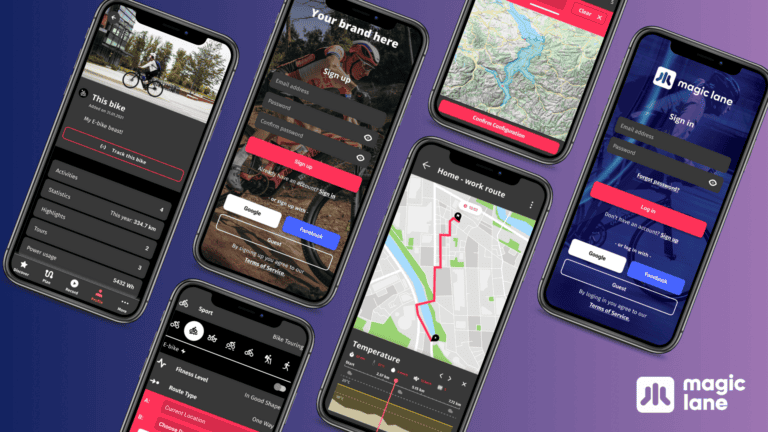With the multi-million dollar investment from No Such Ventures, Magic Lane aims to expand into new markets.
“Moreover, this investment allows us to improve safety, accessibility and efficiency in urban environments, starting in the micro-mobility market,” said Magic Lane CEO Raymond Alves. He plans to use the new money primarily to expand commercial operations, strengthen marketing initiatives and deepen partnerships.
Magic Lane focuses on the mapping, location and navigation industry. To this end, it makes available Software Development Kits (SDKs) that allow companies in various programming languages to easily build maps, location and navigation features into vehicles, apps and online platforms. It supports Android, iOS, JavaScript, QT, Linux, Flutter and C++, among others.
Lighter maps
Magic Lane’s technology should distinguish itself by operating on minimal hardware, not tracking end users’ location data, and allowing navigation and routing to continue to work offline. This makes the technology suitable for electric bikes, scooters and other built-in applications. It could also be functional for companies with large fleets of vehicles, such as logistics carriers and ride-sharing platforms. “For IoT and specifically ‘connected mobility’ to really come into its own, smarter, lighter and faster map and navigation solutions are needed than is currently the standard,” responded Thijn van Helvoirt of No Such Ventures.
The Amsterdam-based company emerged from Route66 and launched in November 2022. It has since rolled out in Europe and Asia and competes with major navigation players such as Google, TomTom, HERE Technologies, and Mapbox.
Tip: Magic Lane launches navigation platform with more privacy than Google Maps
